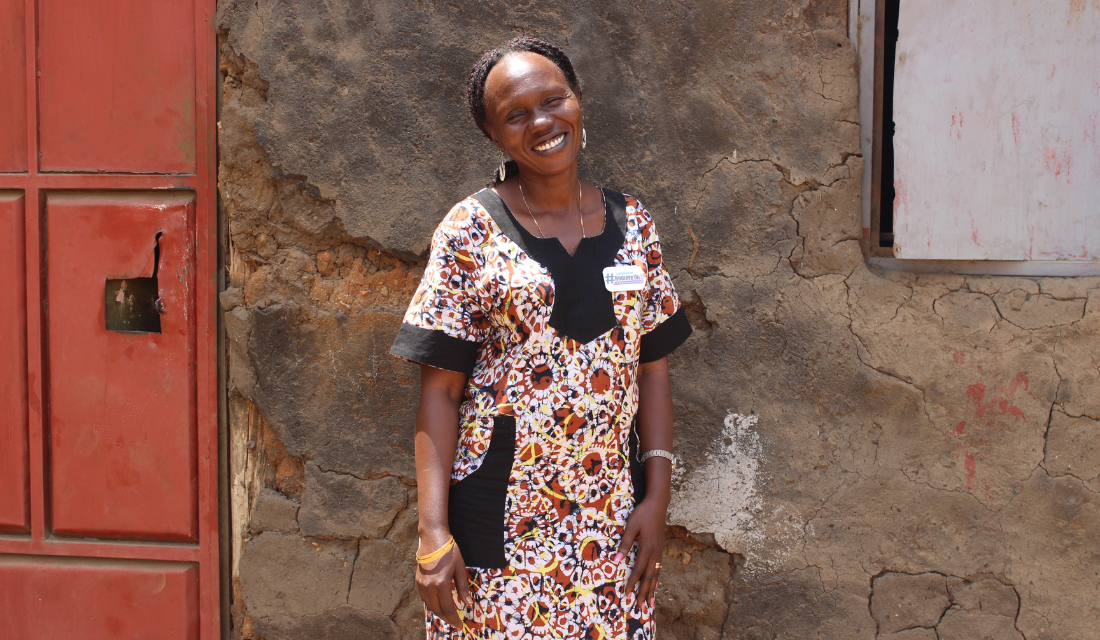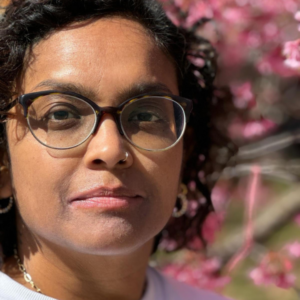Supporting Women and Girl Survivors of Violence Requires Sensitivity and Care

By Nicole Hosein, Director, Women’s Initiatives
Globally, 27% of women aged 15-49 years have experienced physical and/or sexual violence by an intimate partner at least once in their lifetime (UN Women, 2021); however, for those who have experienced violence against women and girls, less than 40% seek help of any sort. Why so few? Societal attitudes and cultural beliefs often stigmatize survivors, creating significant barriers to seeking help.
When we as practitioners discuss violence against women and girls, it’s imperative that we approach the topic with sensitivity and care. Each person’s experience is unique and deeply personal. Their pain, struggles and journey deserve our deepest respect and understanding. It’s important to remember that no one ever deserves to experience violence. Those who experience violence and survive it are never at fault for the abuse they’ve endured.
Society often asks those who’ve experienced violence, “why didn’t you leave?” “Why didn’t you fight back?” These were my own questions to my mom when I first understood that my dad was physically, emotionally, sexually, financially and psychologically abusing her. I didn’t ask my dad why he was abusing my mom. I did what many of us often do–we put sole responsibility on the person experiencing violence to fix their own situation and we don’t hold those who are violent towards others accountable. Years later, I understood that part of the work to reduce violence against women and girls involves questioning the societal structures and attitudes that allow violence to persist. Our focus has to be on both supporting survivors and holding perpetrators accountable.
Those who have experienced violence demonstrate incredible strength and resilience every day. They carry heavy burdens, and many find the courage to rebuild their lives, care for their families and become advocates for change. This kind of resilience is inspiring.
“What I have come to know with certainty is this—as a community, our role is to listen without judgment and offer consistent, compassionate support.”
– Nicole Hosein
A survivor’s journey to accessing appropriate, sensitive care and services can be a long and frustrating one. Secondary victimization and uncoordinated or fragmented services along this journey result in many survivors not receiving the care they seek—and many more never disclosing violence against them in the first place.
With proper support, those who experience violence have the opportunity to heal, but their healing journey is not linear; it’s a process that requires patience, understanding and often professional help. When we provide survivors with safe spaces to share their stories and process their trauma, access to resources like counseling services and legal aid, and survivor-sensitive support that respects their autonomy and choices, we witness amazing transformations. Many survivors do more than endure, they thrive, rediscovering joy, reclaiming their power and often using their experiences to help others.
In my role as the Director for Women’s Initiatives at Episcopal Relief & Development, I work with a team of dedicated, compassionate and empathetic individuals who show up every day to support our partners in Liberia, the Democratic Republic of the Congo, South Sudan, South Africa and Burundi. We equip faith and other community leaders on Do-No-Harm, survivor-sensitive and trauma-informed approaches to engage survivors and confidentially report their accounts and information, as well as basic case management to support survivors to access appropriate services. We also fund safe houses and provision of dignity kits and other immediate needs, such as food and non-food items.
I’ve been a practitioner actively working in the field of addressing violence against women and girls for my entire adult life. My compassion and empathy for those who have experienced violence has grown and deepened over the years. What I have come to know with certainty is this—as a community, our role is to listen without judgment and offer consistent, compassionate support. By fostering environments of trust and empathy, we can help break the silence surrounding violence against women and girls and create pathways for healing and justice.
Remember, every survivor’s story is a testament to the human spirit’s capacity to overcome incredible adversity. By approaching this topic with sensitivity and avoiding victim-blaming, we honor their experiences and contribute to a culture of support and empowerment.
 |
Nicole Hosein is the Director, Women’s Initiatives at Episcopal Relief & Development. |


